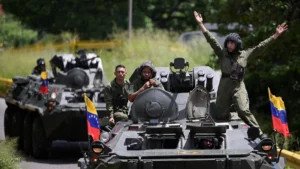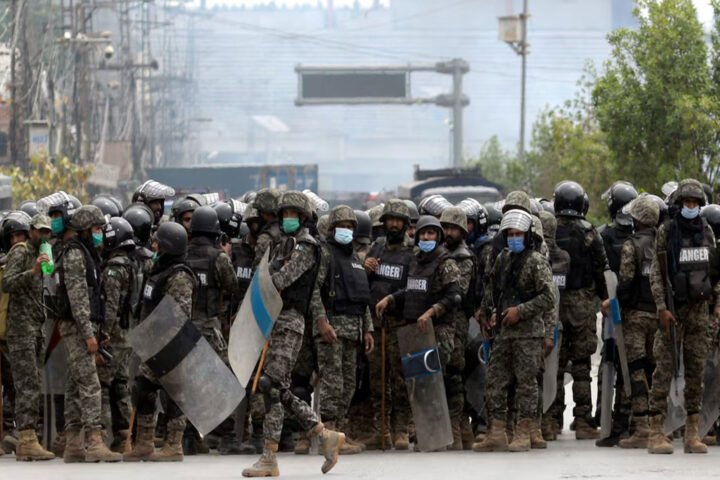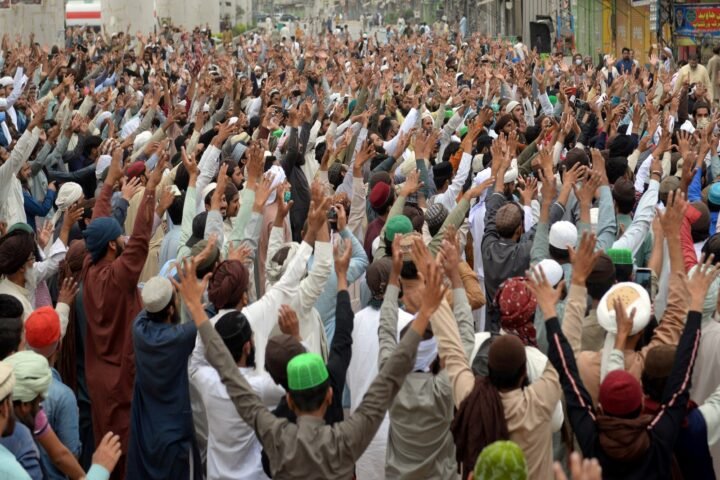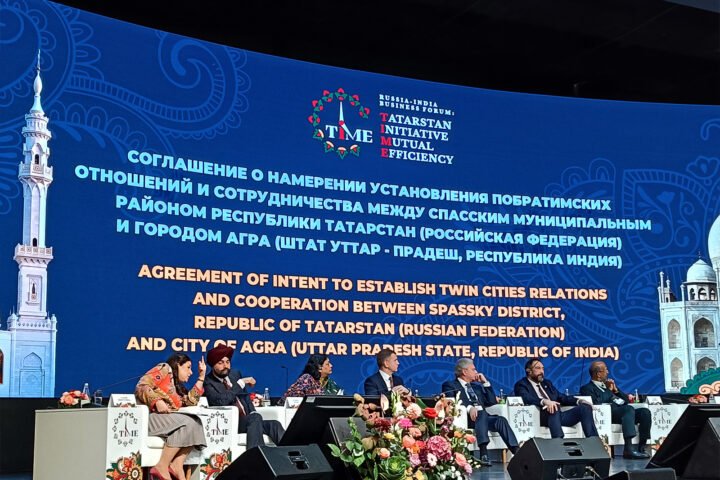Venezuela–U.S. Military Tensions: Venezuelan President Nicolás Maduro has accused the United States of inciting military aggression against Venezuela as tensions rise in the Caribbean, asserting the country’s commitment to defending its sovereignty, reports 24brussels.
During an international forum broadcast by Venezolana de Televisión (VTV), Maduro claimed that Washington aims to impose “puppet governments” in Latin America and expropriate Venezuela’s natural resources amid escalating military operations led by former U.S. President Donald Trump. He emphasized that Venezuela “will never bow before any empire” and reaffirmed the nation’s right to sovereignty and peace.
Amid a backdrop of nearly 60 nations joining him, Maduro threatened that Venezuelans would “move from nonviolent to armed forms of struggle” if necessary to safeguard their independence. His remarks coincide with increased regional militarization, which Caracas has condemned, citing the operations of U.S. warships and F-35B fighter jets near its waters under the pretext of counter-narcotics operations.
In tandem with these developments, Vice President Delcy Rodríguez accused the Guyanese government of facilitating U.S. invasion efforts, specifically pointing to ExxonMobil as a financial impetus behind alleged militaristic aggression against Venezuela. This claim follows a formal complaint lodged by Caracas with the UN Security Council regarding repeated incursions of U.S. aircraft within 80 kilometers of its coastline.
The U.S. Department of Defense defended its Caribbean presence as necessary for anti-drug maritime operations after recent attacks on vessels it labeled as narcotics-smuggling boats. However, Venezuelan officials have dismissed these justifications, suggesting the U.S. is seeking to rationalize military expansion disguised as counter-narcotics missions.
Public discourse intensified following Trump’s mockery of Venezuelan civil defense initiatives on his social media platform, Truth Social. He shared a video showing Venezuelan women participating in military training, labeling it as a “very serious threat.” The post drew significant attention and criticism, going viral across different political spheres.
The Maduro administration maintains that these training sessions conducted by the Bolivarian National Armed Forces (FANB) are crucial for national defense against perceived U.S. hostility. Maduro asserted that Venezuela stands “more united than ever” in the face of what he termed a war declared by Washington, indicative of escalating rhetoric and mobilization from both sides.
The deteriorating relationship between Caracas and Washington has resulted in renewed political and military tensions, with Venezuela continuing to adopt a defiant stance against alleged imperialist interventions. Maduro called for the international community to uphold Venezuela’s territorial integrity, warning against plans to exploit the nation’s oil, gas, and gold resources.
Government sources have reported that Venezuela is strengthening its defense systems and mobilizing civilian militias to counter perceived external threats. Maduro declared that the nation would respond firmly to any acts of aggression, affirming that their defensive stance is rooted in international law and the principle of non-intervention, which are central to his administration’s foreign policy.
This ongoing standoff has transformed the Venezuela-U.S. dispute into a broader geopolitical issue, raising concerns regarding the balance of power in Latin America. Regional analysts contend that the Caribbean could become a significant strategic hotspot reminiscent of Cold War dynamics, as global powers closely watch the intersection of resource politics, sovereignty issues, and U.S. military strategy.
Maduro’s accusations reflect a growing pattern of diplomatic tension and military posturing between Caracas and Washington, characterized by reciprocal allegations of airspace violations, espionage, financial sanctions, and political propaganda. Venezuela perceives U.S. naval maneuvers as intimidation, while Washington defends them as part of an extensive counter-narcotics campaign.
Experts indicate that the heightened militarization of the Caribbean signifies a renewed U.S. interest in South American resources, echoing historical interventions in the region. Venezuela’s strategic location and vast oil reserves contribute an essential energy-security dimension to the ongoing crisis.
The situation underscores the fragility of multilateral diplomacy in the hemisphere, with organizations like CELAC, ALBA-TCP, and the OAS struggling to present a unified front against increasing external pressures. The support voiced by Russia, China, and Iran for Venezuelan sovereignty raises further concerns in Washington regarding potential military collaboration in the region.
Given these dynamics, Venezuela-U.S. military tensions are poised to remain pivotal in global geopolitical discussions, particularly regarding energy control, maritime law, and hemispheric stability. Observers urge that forthcoming actions from either side could profoundly alter the security framework of Latin America in the next decade.










